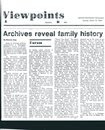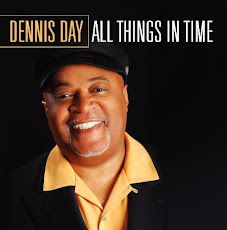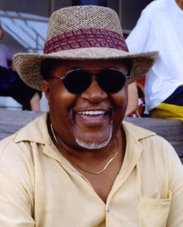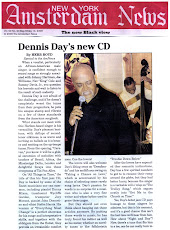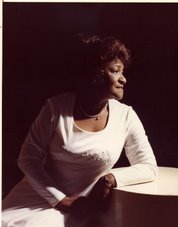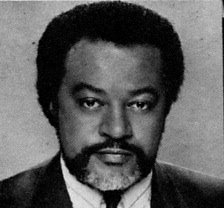Several weeks ago, I posted a statement on my Facebook page concerning my personal displeasure regarding the Lyceum Theatre’s production of Scottsboro Boys currently playing on Broadway. In fact, after seeing the play, I felt compelled to conduct my own un-scientific straw poll among the nine members of the racially diverse group whom attended the play along with me. I was even emboldened to randomly poll the views of a half dozen males, all baby boomers, I was able to button hole beneath the Lyceum’s marquis eliciting their candid opinions of the play. Among both groups of theatergoers there were strong objections or feelings of uneasiness about employing minstrelsy with young black men in blackface as a vehicle to embellish such a serious historical issue. A white middle-aged male respondent suggested the show was on a slippery-slope, tantamount to some Jewish critiques toward a perceived aggrandizing of the Nazi parody employed in the play The Producers reference to Spring-Time for Hitler.
Apparently the Scottsboro Boys affair is a topic that after eighty years still evokes the ire of many African Americans and minorities. Despite a brilliant cast of young song and dance men all of whom deliver valiant high energy performances as they try engaging their audience, the historical and moral challenges posed by the productions’ script and artistic conceptualization saps the plays energy as the show struggles to balance it’s intended entertainment value with it's desired result of presenting a work of genuine redeeming social value.
The net result, a palpable uneasiness too intense for comfort levels among many unfamiliar with the Scottsboro Boys’ narrative; a sad saga of nine young men denied justice, wrongfully imprisoned for years, robbed of their youth after being falsely accused of raping two white women in the Jim Crow south. Their story ultimately changed the American system of jurisprudence and jury selection procedures. But one of the most egregious miscarriages of American justice represented by their youthful suffering remains a painful chapter for America and based upon growing reaction, particularly so within the African American community.
Monday, November 22, 2010
Friday, November 19, 2010
A Simple Photo for Not So Simple Times
A Simple Photo For Not So Simple Times
By Dennis Day
As time goes by I treasure this photo more and more, taken circa 1966, at Fisk University -- an incubator of the modern Civil Rights Movement. When I see my Kappa fraternity brethren, many of whom are now successful doctors, lawyers, entrepreneurs, and architects -- and some of whom have made their transition all too soon – I am reminded of words to an old hymn. The song intones that “time is filled with swift transitions.” More importantly, I recognize the value of Historically Black Colleges and Universities (HBCUs) and the pivotal leadership role they play.
In 1960 a Fisk alum, John Lewis -- who is a Kappa and presently serves in the US Congress representing Georgia’s 5th Congressional District -- seized the momentum along with other HBCU students and organized students on campuses at North Carolina A&T and Shaw universities to form the Student Nonviolent Coordinating Committee (SNCC).
On its bucolic campus, Fisk’s student activism, like that at other elite HBCUs, fueled and sustained highly effective SNCC chapters in the South. SNCC students from Fisk and other HBCUs led peaceful demonstrations, sit-ins, and freedom marches, tearing down Jim Crow walls to end segregation and pushing for equal opportunities by peacefully demanding constitutional rights that are now taken for granted in American life.
One year prior to this photo, on March 9, 1965, SNCC Chairman John Lewis and Reverend Hosea Williams led more than 600 marchers in a historic march across the Edmund Pettus Bridge in Selma, Alabama on what came to be known as “Bloody Sunday.” TV images of vicious attack dogs and police brutality wielded against the marchers infuriated millions globally, subsequently intensifying America's political resolve to end segregation through passage of the Civil Rights Act of 1968.
On November 18 this year, Congressman John Lewis received the nation’s highest civilian honor, the Presidential Medal of Freedom, for his crucial role in helping create a more perfect union. This award represented the fulfillment of hopes and aspirations of many HBCU alumni over many decades.
As students, my generation of HBCU graduates were on the cutting edge of history, helping steer our nation toward an era of historic change for a better world. I guess that’s why this photograph takes on special personal meaning for me and why we, the men of Kappa Alpha Psi Fraternity, framed in the emblem of our iconic Kappa diamond, appear to be so filled with pride!
By Dennis Day
As time goes by I treasure this photo more and more, taken circa 1966, at Fisk University -- an incubator of the modern Civil Rights Movement. When I see my Kappa fraternity brethren, many of whom are now successful doctors, lawyers, entrepreneurs, and architects -- and some of whom have made their transition all too soon – I am reminded of words to an old hymn. The song intones that “time is filled with swift transitions.” More importantly, I recognize the value of Historically Black Colleges and Universities (HBCUs) and the pivotal leadership role they play.
In 1960 a Fisk alum, John Lewis -- who is a Kappa and presently serves in the US Congress representing Georgia’s 5th Congressional District -- seized the momentum along with other HBCU students and organized students on campuses at North Carolina A&T and Shaw universities to form the Student Nonviolent Coordinating Committee (SNCC).
On its bucolic campus, Fisk’s student activism, like that at other elite HBCUs, fueled and sustained highly effective SNCC chapters in the South. SNCC students from Fisk and other HBCUs led peaceful demonstrations, sit-ins, and freedom marches, tearing down Jim Crow walls to end segregation and pushing for equal opportunities by peacefully demanding constitutional rights that are now taken for granted in American life.
One year prior to this photo, on March 9, 1965, SNCC Chairman John Lewis and Reverend Hosea Williams led more than 600 marchers in a historic march across the Edmund Pettus Bridge in Selma, Alabama on what came to be known as “Bloody Sunday.” TV images of vicious attack dogs and police brutality wielded against the marchers infuriated millions globally, subsequently intensifying America's political resolve to end segregation through passage of the Civil Rights Act of 1968.
On November 18 this year, Congressman John Lewis received the nation’s highest civilian honor, the Presidential Medal of Freedom, for his crucial role in helping create a more perfect union. This award represented the fulfillment of hopes and aspirations of many HBCU alumni over many decades.
As students, my generation of HBCU graduates were on the cutting edge of history, helping steer our nation toward an era of historic change for a better world. I guess that’s why this photograph takes on special personal meaning for me and why we, the men of Kappa Alpha Psi Fraternity, framed in the emblem of our iconic Kappa diamond, appear to be so filled with pride!
Thursday, November 11, 2010
The Colored Soldier by Langston Hughes(Excerpt)
Last night in a dream my brother came to me
Out of his grave from over the sea, back from the acres of crosses in France,
And said to me, “Brother, you’ve got your chance,
And I hope you’re making good, and doing fine-
‘Cause when I was living, I didn’t have mine.
Black boys couldn’t work then anywhere like they can
today,
Could hardly find a job that offered decent pay.
The unions barred us, the factories too,
But now I know we’ve got plenty to do.
We couldn’t eat in restaurants, had Jim Crow cars;
Didn’t have any schools, and there were all sorts of
bars
To a colored boy’s rising in wealth or station-
But now I know well that’s not our situation:
The world’s been made safe for Democracy
And no longer do we know the dark misery
Of being held back, of having no chance-
Since the colored soldiers came home from France.
HAPPY VETERAN”S DAY to all the men and women
of are great United States armed services, past and present!
Thank you for protecting our freedoms!!!
Published 11/10/10: A New Day in Media, D-Day Media Group Inc.
Out of his grave from over the sea, back from the acres of crosses in France,
And said to me, “Brother, you’ve got your chance,
And I hope you’re making good, and doing fine-
‘Cause when I was living, I didn’t have mine.
Black boys couldn’t work then anywhere like they can
today,
Could hardly find a job that offered decent pay.
The unions barred us, the factories too,
But now I know we’ve got plenty to do.
We couldn’t eat in restaurants, had Jim Crow cars;
Didn’t have any schools, and there were all sorts of
bars
To a colored boy’s rising in wealth or station-
But now I know well that’s not our situation:
The world’s been made safe for Democracy
And no longer do we know the dark misery
Of being held back, of having no chance-
Since the colored soldiers came home from France.
HAPPY VETERAN”S DAY to all the men and women
of are great United States armed services, past and present!
Thank you for protecting our freedoms!!!
Published 11/10/10: A New Day in Media, D-Day Media Group Inc.
Monday, November 1, 2010
A Virgin's Dilemma: Why Delete a FB Friend? by Dennis Day
Today I deleted a so-called friend from my Facebook account; it was a decision I begrudged since until now I’d been a virgin and new to the “de-friending” process. In my view Facebook as a social networking vehicle best serves its members in the interest of creating global community,building career and marketing networks among shared interest and furthering the great democratic experiment into the twenty-first century by facilitating bridges of human understanding and tolerance and shared creativity.So it offends my communal sensibilities when ever these ideals are thwarted or don’t square with human reality.
As a social media platform, Facebook is far from perfect and can be simultaneously invasive, socially and personally gratifying, disillusioning, and manipulative by habitually preying on our natural narcissistic and perhaps even voyeristic impulse,linking it’s members potentially to more than a half-billion people world-wide,making it the largest human marketing chain in human history seemingly poised to affirm the six degrees of separation theory. Now with over 130 translations Facebook’s growth as a marketing phenomenon seems endless. With expansion, however, has come a parallel rise in the number of charlatans seeking to game the system, by offering schemes and get rich quick dreams or making appeals for all types of difficult to authenticate charities and causes.
Facebook has been compelled to address it’s long reported problem of Click Fraud among advertisers whom claim Facebook had been reporting and charging for add clicks that don’t exist; these clicks are consumer or prospective buyer initiated actions charged to Facebook advertisers’ accounts whenever a person clicks on an add purchased on Facebook typically by a member advertiser client.The higher the volume of clicks,the greater the profit margin for FB.Reports of under-clicks have been listed range any where from 20 to 100% lower than reported by Facebook as compared to other reputable industry logs used to count the same individual advertisement accounts during adds click cycle. One click can be as small as a cent or more but with a global market of 500 billion consumers profit margins for FB and profit share from product sold on FB can be astronomical.Facebook has vowed to fix the problem,for those of us with products or services to offer we can only hope the cyber giant operates in good faith and does the right thing regarding artists and entrepreneurs seeking to get an honest return on their advertisement investment with Facebook in the expansive global market place.
Whether it's a corporate entity like FB or individual members of social networks the need for accountability, transparency and regulatory oversight of social media seems inescapable.The personal issue for me recently became should I offer my Profile page on Facebook as an ad space and forum for any individual's personal appeal for financial aid on behalf of either themselves, their friends or family members? I realize times are tough and my heart and prayers go out to those who may be on the brink of financial ruin, or struggling in desperate straits. That's why I've stepped up my personal gifts and contributions and on behalf of groups and organizations engaged in charitable giving and other forms of assistance, as I suspect many have done, or hopefully will do. But unless one is promoting a business, service or product on Facebook, I feel personal financial solicitations are off limits and a slippery slope to a dead-end.
Subscribe to:
Comments (Atom)

